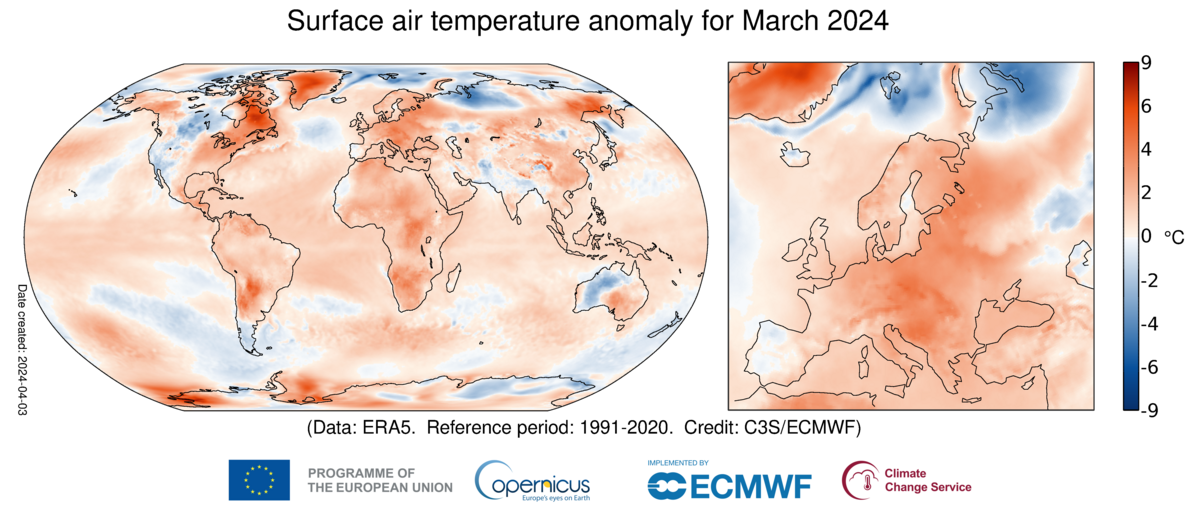March confirmed as hottest ever and 10th straight month to set temperature record
Global average temperature last month stood at 14.14C (57.9F) – the highest ever for March
Your support helps us to tell the story
From reproductive rights to climate change to Big Tech, The Independent is on the ground when the story is developing. Whether it's investigating the financials of Elon Musk's pro-Trump PAC or producing our latest documentary, 'The A Word', which shines a light on the American women fighting for reproductive rights, we know how important it is to parse out the facts from the messaging.
At such a critical moment in US history, we need reporters on the ground. Your donation allows us to keep sending journalists to speak to both sides of the story.
The Independent is trusted by Americans across the entire political spectrum. And unlike many other quality news outlets, we choose not to lock Americans out of our reporting and analysis with paywalls. We believe quality journalism should be available to everyone, paid for by those who can afford it.
Your support makes all the difference.March was the 10th straight month to set a new record for global heat, both in terms of air temperatures and ocean surface temperatures, new data shows.
The global average temperature in March stood at 14.14C (57.9F), the highest ever for the month and exceeding the previous record from 2016 by a tenth of a degree, according to the European Union climate agency Copernicus.
The month was 1.68C (3F) warmer than in the late 1800s when the world started burning fossil fuels and dangerous planet-warming gases accumulated.
It comes after scientists confirmed in February that the world has been consistently hotter by over 1.5C for an entire year.
March being the tenth consecutive month to break the heat record has signalled a worrying trend for scientists.
While some other months since June have had even more extreme temperatures and broke records by wider margins, March’s record wasn’t as exceptional but temperatures are remaining higher consistently.
The “trajectory is not in the right direction”, said Samantha Burgess, deputy director of Copernicus.
For the last 10 months, not just surface air temperatures but also global ocean temperatures have been at record highs.
In March, global sea surface temperature averaged 21.07C (69.93F), the highest monthly value on record and slightly higher than what was recorded in February.
Part of these extreme temperatures have been attributed to the strong El-Nino, a natural climatic condition that warms the central Pacific and changes global weather patterns.

“But its combination with the non-natural marine heat waves made these records so breathtaking,” said Woodwell Climate Research Center scientist Jennifer Francis.
With El Nino waning, the margins by which global average temperatures are surpassed each month should go down, Ms Francis said.
Climate scientists are in consensus that majority of this heat can be attributed to man-made climate crisis, created by consistent carbon pollution from burning coal, oil and gas.
“The trajectory will not change until concentrations of greenhouse gases in the atmosphere stop rising,” Ms Francis said. “Which means we must stop burning fossil fuels, stop deforestation, and grow our food more sustainably as quickly as possible.”
Until then, expect more broken records, she said.

Join our commenting forum
Join thought-provoking conversations, follow other Independent readers and see their replies
Comments